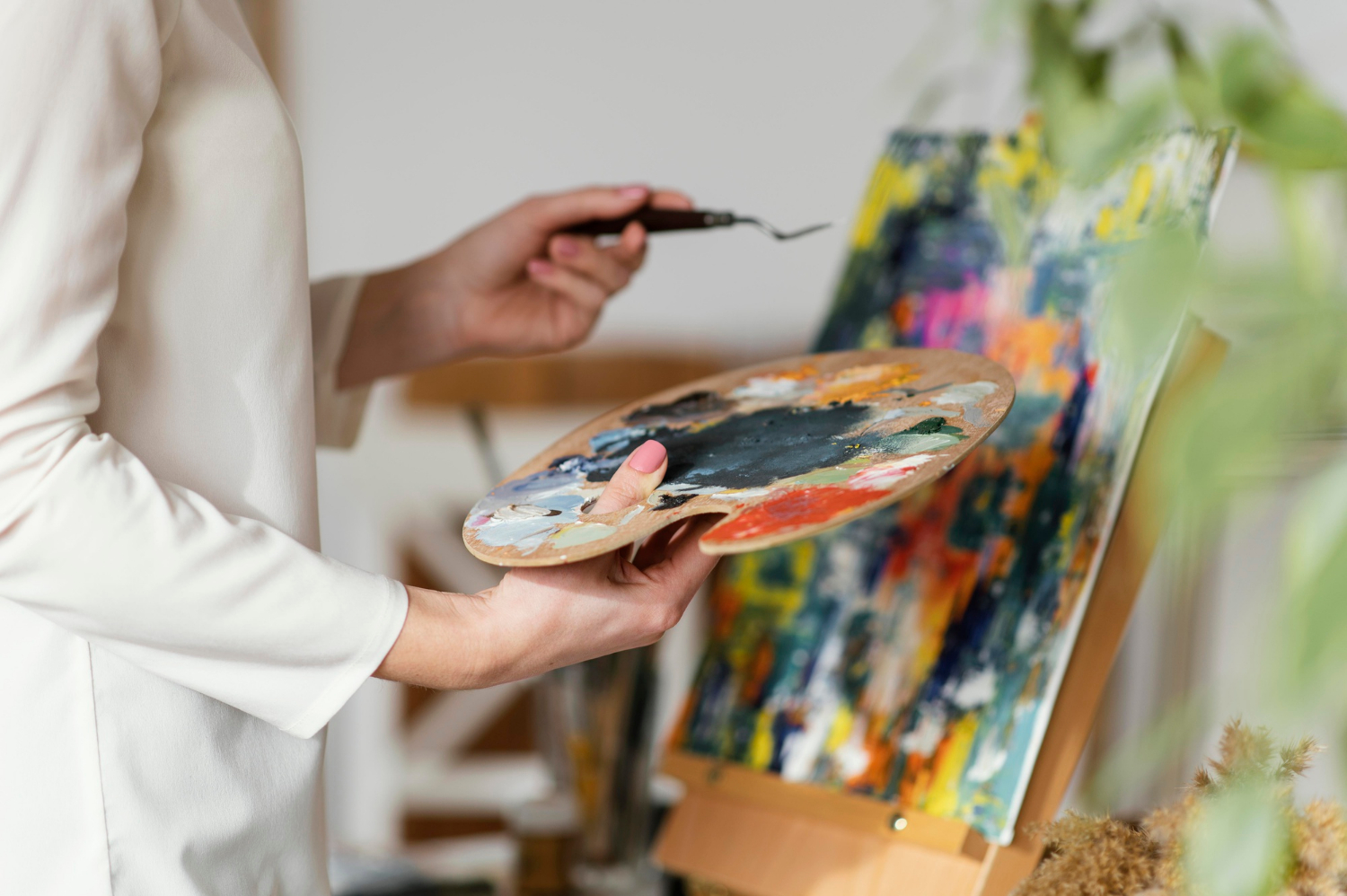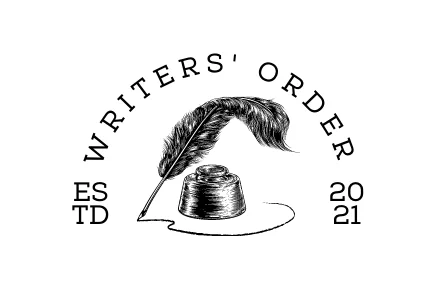You have to be the change to bring the change.

What You Should Know as a Beginner Artist
Our content is reader-supported. We may earn a commission if you make a purchase through one of our links.
The art world can be tough to navigate for a beginner artist. There is potential to grow, but sometimes you will make mistakes. Here are a couple of helpful tips from the experts that can guide you better on your artistic journey, so that you avoid making mistakes that could potentially harm your career as an artist.
Draw From Life
Firstly, an easy and accessible way to improve your art is to draw from life. That means drawing or painting the things around you. Doing so allows you to improve your observational drawing and teaches you how to draw lots of shapes and colors. It also gives you, rather automatically, a feeling for lighting and shadows, and perspective. As such, it’s a great exercise for a beginner artist.
Just sit in your room with your sketchbook and draw a variety of objects around you. You can also always take photos of these objects as (free) reference photos for later.
Try Different Things
As a beginner artist, you should expand your horizons. There are lots of art mediums, materials, and techniques, and you should try as many of them as possible. Don’t just rely on one medium or technique, because to grow as an artist, you need to try a variety of different things. And, of course, only if you try new things, you can find ways of making art that you never expected to love.
Never Stop Learning!
Thirdly, as a beginner artist, you must never stop learning. No matter how good you have gotten, there is always room to grow and improve. And for that, it’s really useful to listen to and learn from other people. You will never figure everything out on your own and you don’t have to. Other people can help you and you can help them.
Don’t Be Too Hard on Yourself
Also, don’t take yourself and your art too seriously. You don’t have to be better than everyone (in fact you never will be) and striving for it will only make you frustrated. There is no “best artist“ that is better than every other artist because art is subjective and individualistic. Your art doesn’t need to be “the best” to have value.
So, stay down to earth and humble. There are new opportunities to learn and grow everywhere. As a beginner artist, always stay curious!
Improve With Criticism
As a related point to the one above, use the criticism you get to improve. Once again, it is important to differentiate constructive criticism and bad faith criticism. With the former, there is a focus on growth and learning, while the latter only points out the flaws with no advice on how to improve.
People who constructively critique you want to see you grow as an artist. You should take their advice if you can. In general, you should search for criticism from qualified people and use it to get better and learn. As an artist, you will have to be able to take criticism, so it’s best if you start early.
Learn From Other Artists
Try to learn from other artists. A lot of artists are on social media, so you can follow them there and learn from them for free. Look at their art, how they create it, and learn from it. Get in contact with them and understand why they are successful. Perhaps you can apply the methods of their success to your art (and your social media presence).
Very importantly here: get inspired, but don’t copy (when it comes to art). Don’t copy somebody’s art and especially don’t pass it off as yours. It’s immoral and it won’t help you improve as an artist.
Inspiration Is Not Magic
Don’t rely on inspiration, which means that you shouldn’t wait for inspiration to magically appear. Sometimes you need to work to get inspired. Some of the best ideas grow out of the process of creating art. So, keep on drawing, painting, and creating, even if you are not feeling inspired. Consistency and dedication are the keys to success.
Stop Waiting for the Right Time
Don’t wait for the right time. As the saying goes, the best time to plant a tree was twenty years ago, and the second-best time is now. The same, of course, goes for creating art and trying new things. Yes, it would be amazing if you had already mastered all the things you want to be able to do.
But you haven’t, and you never will if you don’t start. So start now. There will always be a lack of time, money, resources, experience, and help. But, as stated before, dedication is the most important factor in success.
Don’t wait for perfect conditions to show yourself to the world (they don’t exist, just like the right time). Take pictures, make videos, and post them, because there will never be perfect conditions. And if you are unsure whether your art is “good enough” to post, post it anyway.
Whether your art is “good enough” or not has much more to do with your mindset about your art than with your art itself. Start early by recognizing that your art doesn’t need to be perfect to be “worthy” of being posted.
So use the time you have and use it now. Do things that are out of your comfort zone, not because they are frightening, but because they scared you. A comfort zone is very natural, but as an artist, you should push outside of it to grow.
Remember that you don’t have to have everything figured out from the get-go. Things usually don’t go as planned anyways. It’s okay to take one step at a time and figure it out as you go, as the start is always the most difficult step.
Prepare Yourself for an Emotional Rollercoaster
Furthermore, be aware that you might become a frequent passenger on the “artistic roller coaster.” That is, before you start a new painting, you think to yourself that it’s great and the best idea you ever had. Then when you start and have been working on it, you don’t like it anymore and you want to stop. The next day you come back with a fresh pair of eyes and suddenly you love it again, and the cycle continues.
This happens because the longer you look at your art, the more flaws you find, consciously and subconsciously. So when you have been working on a piece for a while, you have had a lot of time to recognize all the minor flaws that piece inevitably has. And as such, you don’t like it. Then, when you come back the next day, you simply have forgotten the flaws, and the cycle repeats anew.
Being an artist often means that you are heavily emotionally involved in what you are creating. On one hand, that is what defines art and what makes it great. On the other hand, you need to make sure that it isn’t your mental health that is tied to your art, in the sense that you only feel good if you consider your art to be good.
Your art isn’t who you are, rather it’s an expression of yourself. So if your art “fails,” it’s not a failure of the self, but rather a failure to express the self. You should disentangle your self-esteem and your art skills or art performance so that you can still have a great day, even if you made the worst painting of your life.
Having a positive and healthy mindset is very important as an artist and should, therefore, be one of the things you are continuously working towards. Remind yourself that your art doesn’t define your worth and keep working on it. If you do so, you will have a much better and much more joyful experience with art.
Avoid Bad Habits
Last, but certainly not least: avoid bad habits from the start. It’s much easier to never start a bad habit than to break one. So, be gentle with your materials.
Don’t let expensive brushes soak since it damages them. Clean your brushes after every painting session, even if it’s annoying. Also, pay attention to how you sit when you paint, since sitting in an uncomfortable position for a longer amount of time can be bad for your back. It also helps if you learn how to manage your time as an artist.
A little bit more, generally speaking, take care of yourself. Eat when you’re hungry, drink when you’re thirsty, and rest when you’re tired. If you start right away and keep at it, you will do all of these things automatically and you will have far fewer problems. So start today!
Of course, every beginner artist is different. This doesn’t mean that you don’t know these things or necessarily that this advice is right for you. Art is very personal, so you will need to figure out what works for you. Other people’s advice can always only be the first step.



